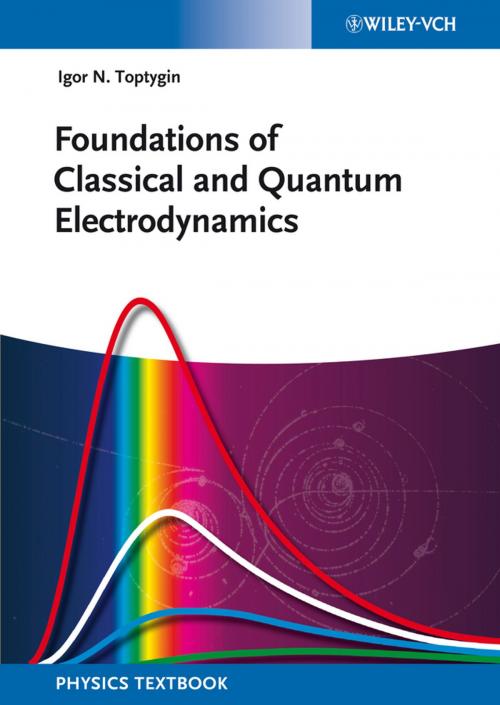Foundations of Classical and Quantum Electrodynamics
Nonfiction, Science & Nature, Science, Physics, General Physics| Author: | Igor N. Toptygin | ISBN: | 9783527677511 |
| Publisher: | Wiley | Publication: | December 30, 2013 |
| Imprint: | Wiley-VCH | Language: | English |
| Author: | Igor N. Toptygin |
| ISBN: | 9783527677511 |
| Publisher: | Wiley |
| Publication: | December 30, 2013 |
| Imprint: | Wiley-VCH |
| Language: | English |
This advanced textbook covers many fundamental, traditional and new branches of electrodynamics, as well as the related fields of special relativity, quantum mechanics and quantum electrodynamics.
The book introduces the material at different levels, oriented towards 3rd-4th year bachelor, master, and PhD students. This is so as to describe the whole complexity of physical phenomena, instead of a mosaic of disconnected data. The required mathematical background is collated in Chapter 1, while the necessary physical background is included in the main text of the corresponding chapters and also given in appendices.
The content is based on teaching material tested on students over many years, and their training to apply general theory for solving scientific and engineering problems. To this aim, the book contains approximately 800 examples and problems, many of which are described in detail. Some of these problems are designed for students to work on their own with only the answers and descriptions of results, and may be solved selectively. The examples are key ingredients to the theoretical course; the user should study all of them while reading the corresponding chapters.
Equally suitable as a reference for researchers specialized in science and engineering.
This advanced textbook covers many fundamental, traditional and new branches of electrodynamics, as well as the related fields of special relativity, quantum mechanics and quantum electrodynamics.
The book introduces the material at different levels, oriented towards 3rd-4th year bachelor, master, and PhD students. This is so as to describe the whole complexity of physical phenomena, instead of a mosaic of disconnected data. The required mathematical background is collated in Chapter 1, while the necessary physical background is included in the main text of the corresponding chapters and also given in appendices.
The content is based on teaching material tested on students over many years, and their training to apply general theory for solving scientific and engineering problems. To this aim, the book contains approximately 800 examples and problems, many of which are described in detail. Some of these problems are designed for students to work on their own with only the answers and descriptions of results, and may be solved selectively. The examples are key ingredients to the theoretical course; the user should study all of them while reading the corresponding chapters.
Equally suitable as a reference for researchers specialized in science and engineering.















